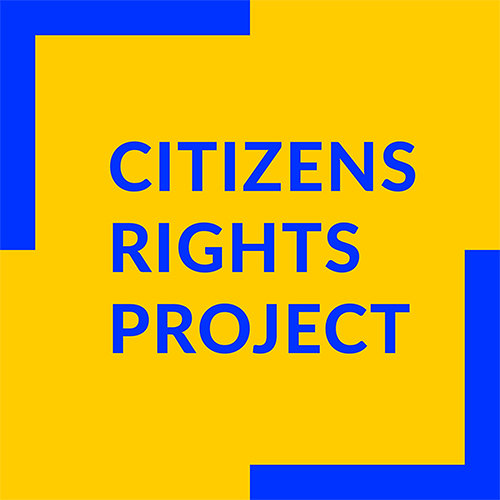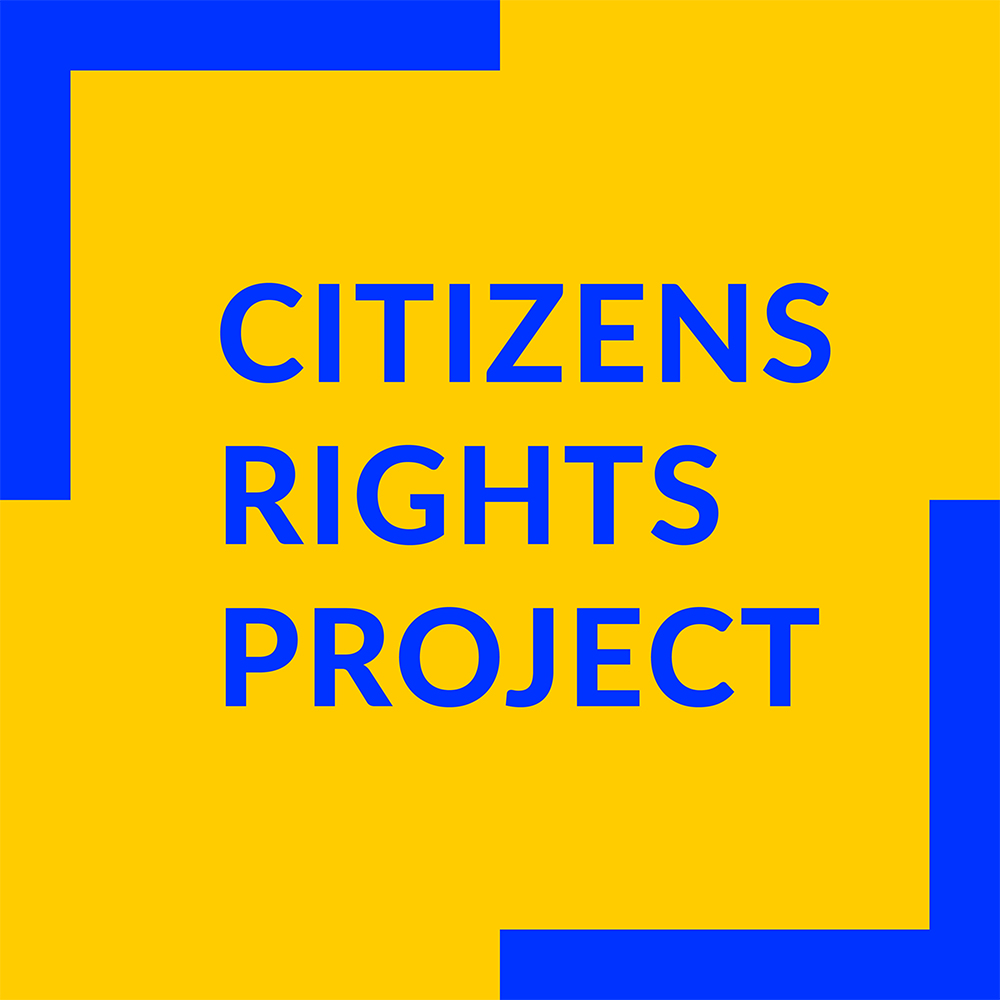
EU Settlement Scheme Home Office Statistics
The Home Office is regularly publishing statistics on EU Settlement Scheme applications. You can find them on this link.

MAY 2023 | Evidence Report on the Home Office decision-making under the EU Settlement Scheme
In this report, Here for Good describe the practice of opaque decision-making andcommunication with EU Settlement Scheme (EUSS)applicants by the Home Office, and how this negatively impacts the Scheme’s ability to operate in a ‘smooth, transparent and simple’ manner, as well asits ability to ‘help applicants to prove their eligibilityand avoid any errors or omissions in their applications’as required under the Withdrawal Agreement.

MARCH 2022 | Challenges around maintenance of UKVI account
This is the forth report of the the3million to the Independent Monitoring Authority. It focuses on the challenges of maintaining a digital status, whether by the status holder when initiating changes to identity document or contact details, or by the Home Office when handling multiple applications by one citizen. This presents obstacles for people to access work, travel and other key requirements to live in the UK. Citizens Rights Project have collaborated with some case studies and comments to this report.

MARCH 2022 | How Secure is Pre-Settled Status for EU Citizens After Brexit?
This report examines the challenges that some residents with pre-settled status will face to secure settled status, focusing on institutional features related to the design and implementation of the EUSS. The focus of the report is thus not to identify the cohorts at risk—this has been already done elsewhere (e.g. Sumption and Fernández-Reino, 2020). Rather, it is to examine what factors affect pre-settled status holders’ ability to secure permanent, settled status—including the risks that they fail to reapply, have difficulties proving their eligibility, or become ineligible.

FEBRUARY 2022 | Preventing and Addressing Abuse and Exploitation: A Guide for Police and Labour Inspectors Working with Migrants
This report written by Focus on Labour Exploitation (FLEX) and the Latin American Women’s Rights Service (LAWRS) highlights the negative impact of data-sharing between the police/labour inspectors and immigration enforcement on migrant victims of crime, in particular domestic abuse and labour exploitation, and shows how the introduction of safe reporting mechanisms can help prevent and address abuse and exploitation. Building on international good practice, it outlines practical strategies to increase trust between these agencies and migrant communities to enable migrants to securely report abuse and exploitation and agencies to access valuable intelligence to prevent and address these crimes.
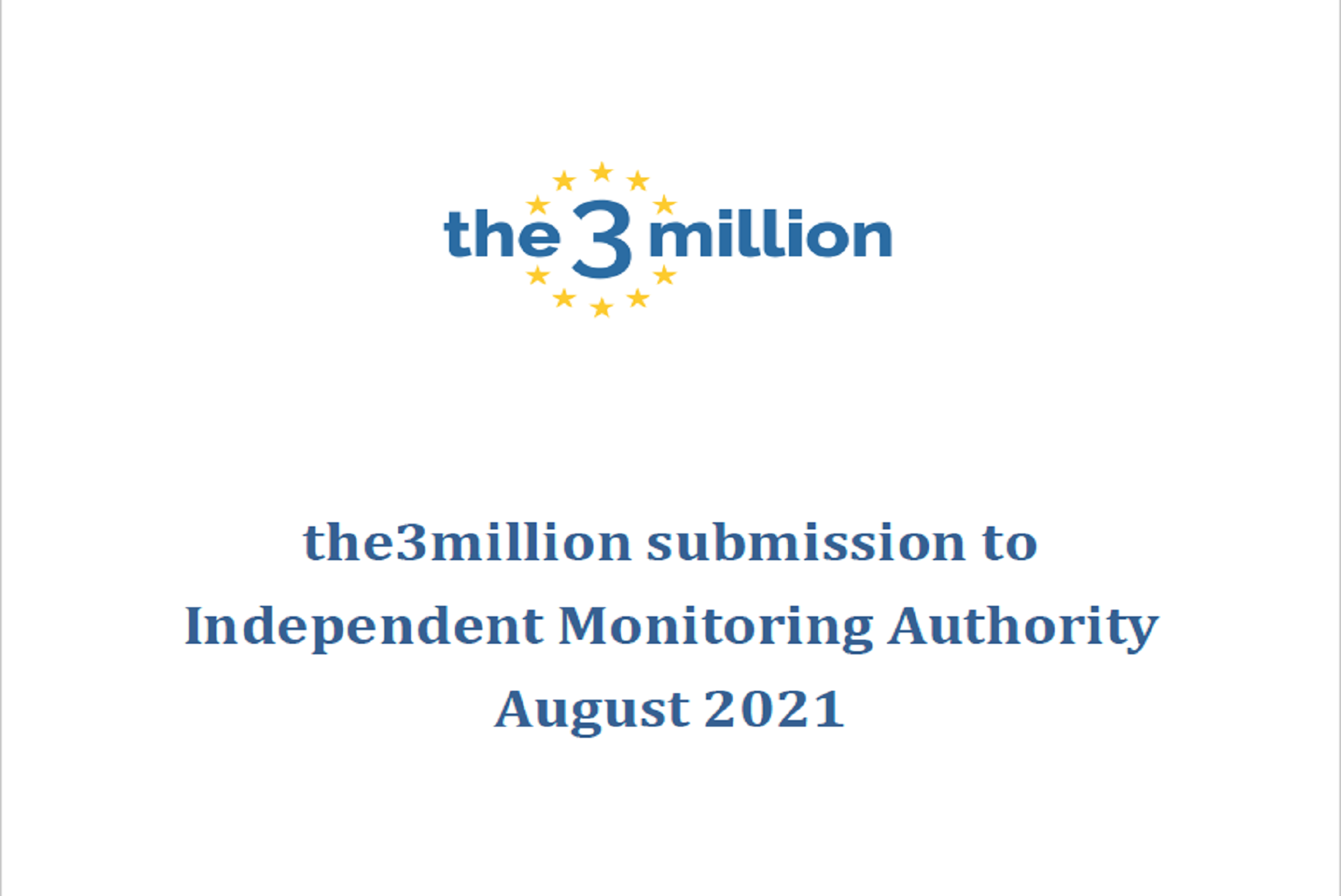
AUGUST 2021 | The3Million submission to the Independent Monitoring Authority
In this report to the Independent Monitoring Authority (IMA), the3milllion highlights the various barriers those with status and those without status will encounter now that the EU Settlement Scheme deadline has passed. These barriers reflect the complex and dangerous hostile environment mechanics established to prevent migrants without status from accessing work, housing and other vital services.
Their recommendations identify immediate solutions but also set out areas where the IMA should research, understand and challenge the risk of rights protected under the Withdrawal Agreement being abused or breached. The refusal of access to work, housing, support and healthcare has dire consequences for the people experiencing such refusals, and for the integrity of those rights.
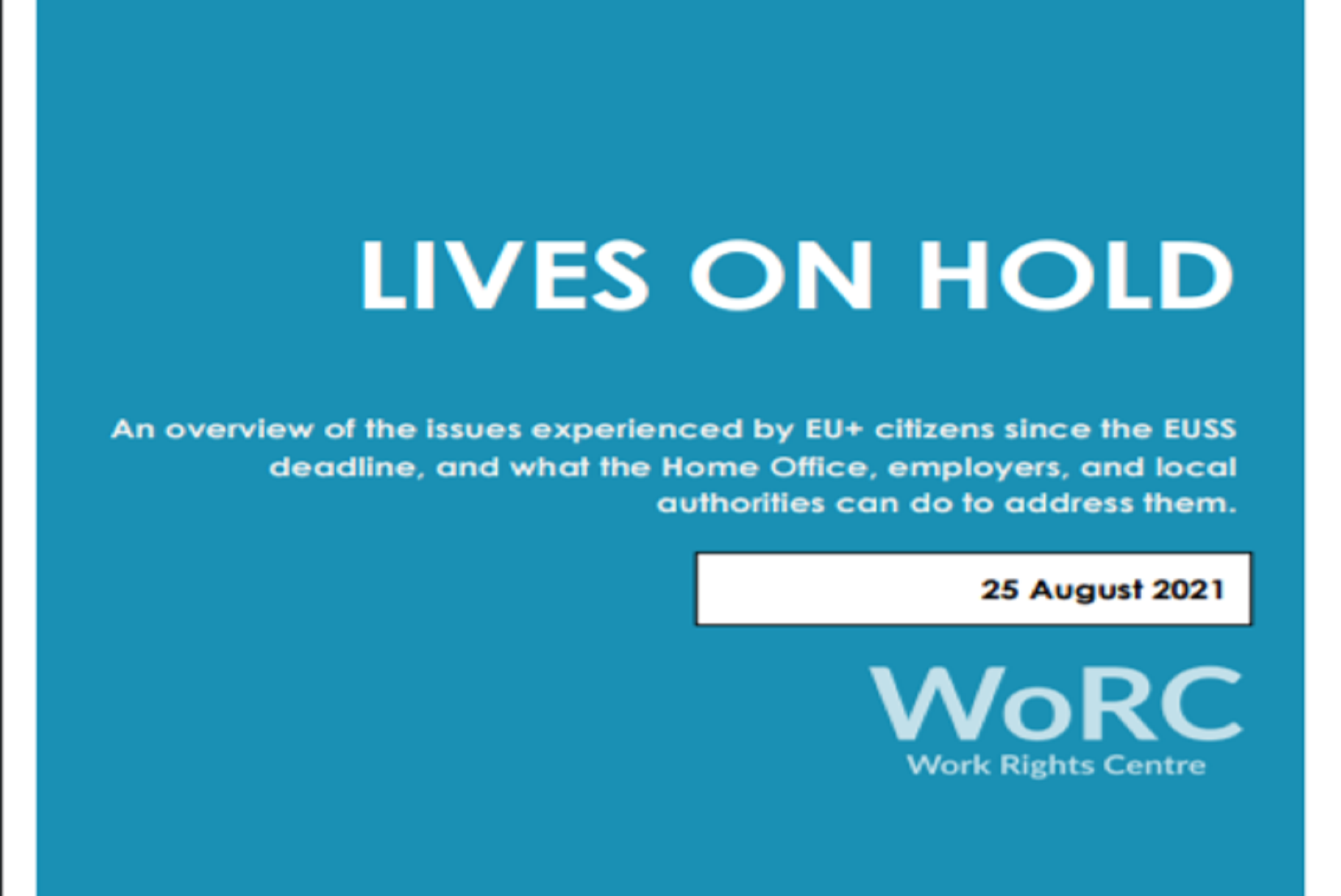
AUGUST 2021 | Lives on hold
In their recent report Lives on Hold, the Works Right Centre use data from their frontline work to highlight ongoing issues identified since the EUSS deadline. A recurring problem was that people awaiting a decision often struggle to prove their right to work. Since publishing the report, they dug deeper into why this was happening and created a briefing about the Employer Checking Service, which they believe is part of the problem.
The Employer Checking Service is an online service for employers to check applicants’ right to work if they don’t have a ‘share code’. Often this happens when the applicant’s EUSS application is still pending. In their latest briefing, they highlight the service’s faults, as well as the remedial actions the Home Office should take to fix them. In summary, we found that contradictory wording, out-of-date information claiming that EEA nationals don’t require right-to-work checks, and a lack of clarity regarding applicants’ reference numbers make this service confusing to use.
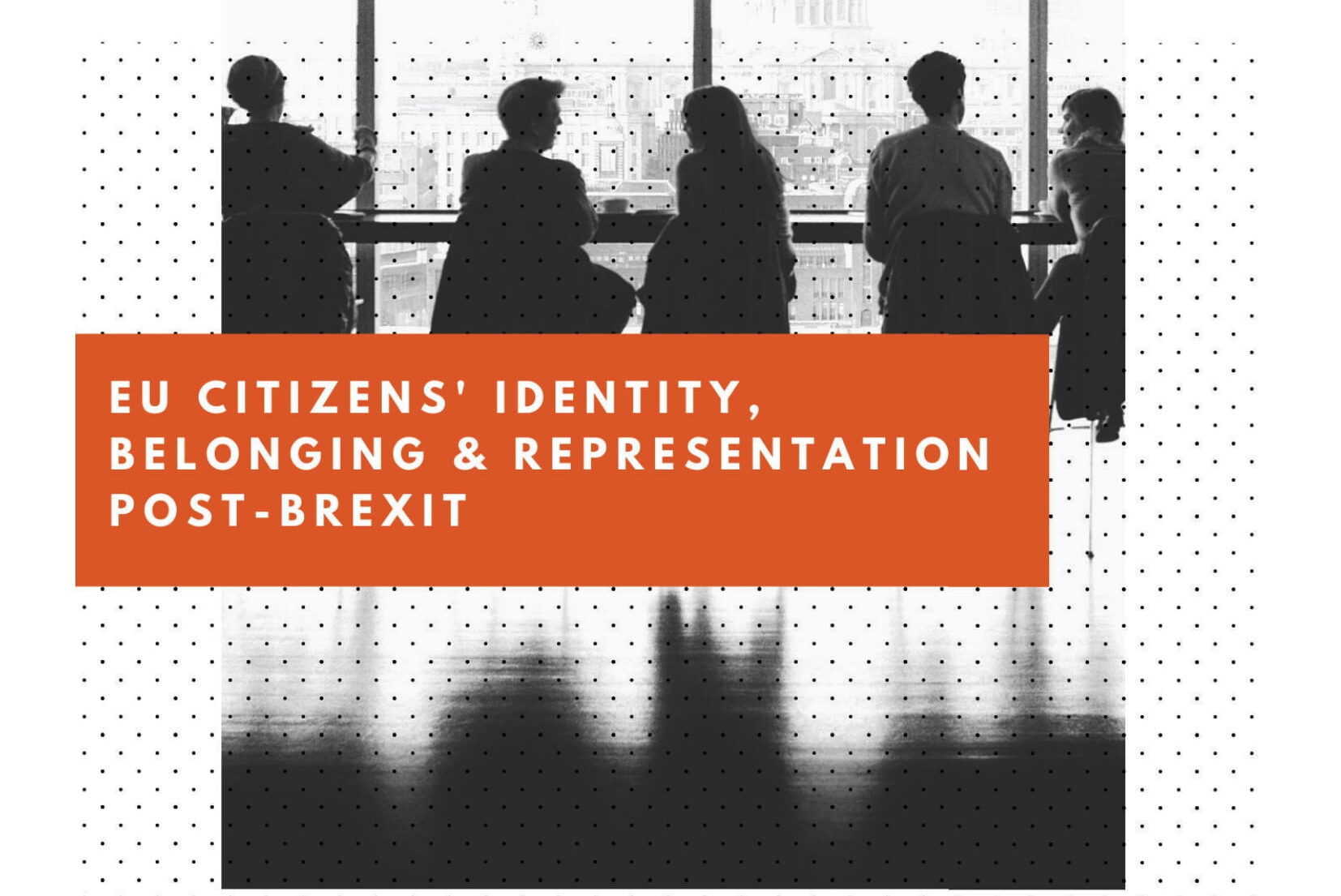
AUGUST 2021 | EU Citizens’ Identity, Belonging & Representation Post-Brexit
This report by prof. Tanja Bueltmann and dr. Alexandra Bulat presents findings and data from the ‘EU Citizens’ Identity, Belonging and Representation Post-Brexit’ Survey conducted between 15 February and 15 March 2021.
The Survey was designed for adult EU/EEA/Swiss nationals or dual British-EU/EEA/Swiss nationals who acquired British nationality through registration or naturalisation (not by birth) who normally live in the UK and arrived here before 31 December 2020. It contained a mix of ‘tick box’ and free comment questions around five clusters of questions covering: (1) status in the UK; (2) issues of identity; (3) views on belonging; (4) experiences of representation; and (5) standard demographic questions.

JUNE 2021 | A digital status in practice: first report on the findings from the3million’s digital status reporting tool

JUNE 2021 | The EU Settlement Scheme and the Hostile Environment

MARCH 2021 | Citizens’ Rights Project Research Briefing: EU citizens’ access to welfare benefits and pensions
This paper, prepared by social-legal researcher Nina Miller Westoby (University of Glasgow), addresses a number of questions relating to the welfare benefits and pension entitlements of European Union citizens who began living in Scotland (or the UK) before the end of the transition period (31 December 2020) and who continue to live here. This paper is divided into two sections. The first section looks at the rights of Union citizens to access social assistance benefits in Scotland and the related terms of title II WA. The second section looks at the rights of Union citizens to access pensions and other social security benefits in Scotland and the related terms of title III WA.

This report by the Joint Council for the Welfare of Immigrants explores EEA+ care workers’ awareness, understanding and experiences of the EU Settlement Scheme. Our research finds that as well vulnerable EEA+ citizens, care workers and other key workers – the very people we are relying on to pull us through the COVID crisis – are in real danger of being left behind by the EU Settlement Scheme.
Some key findings:
- 1 in 7 care workers surveyed online did not know or were not sure what the EUSS was
- 1 in 3 care workers surveyed in person had not heard about the EUSS before we met them
- 1 in 3 care workers surveyed online did not know that there was a deadline for the EUSS or did not know when it was
With the EUSS deadline less than six months away and the UK still very much in the grips of the COVID pandemic, the situation couldn’t be more urgent. The EUSS deadline must be lifted to prevent the creation of a significant new population of irregular migrants vulnerable to Hostile Environment policies, including detention and deportation.
More information about the report and campaign here.
